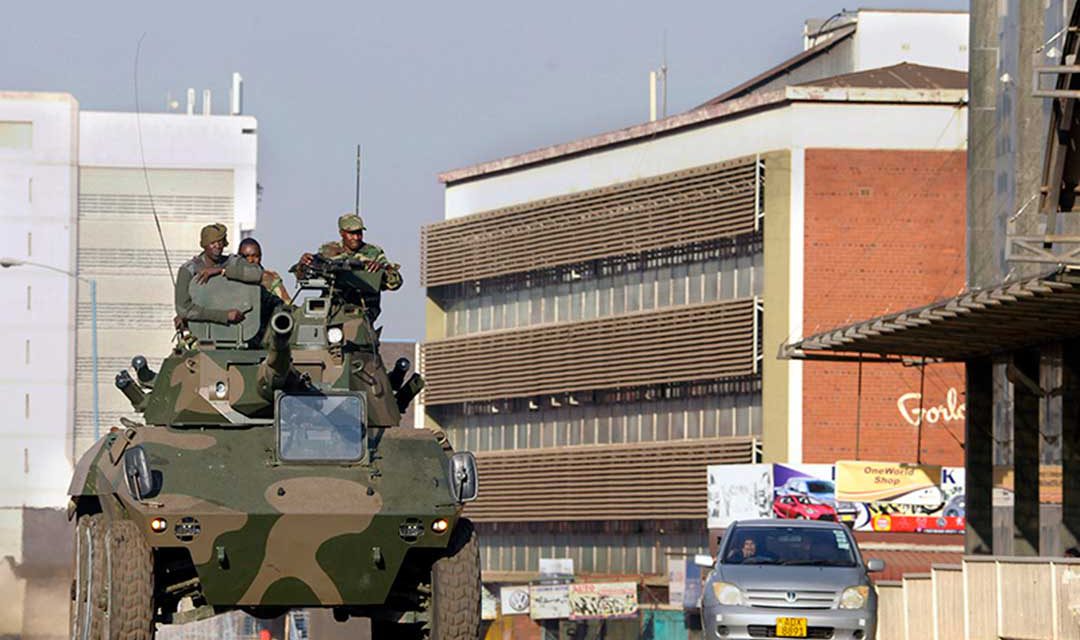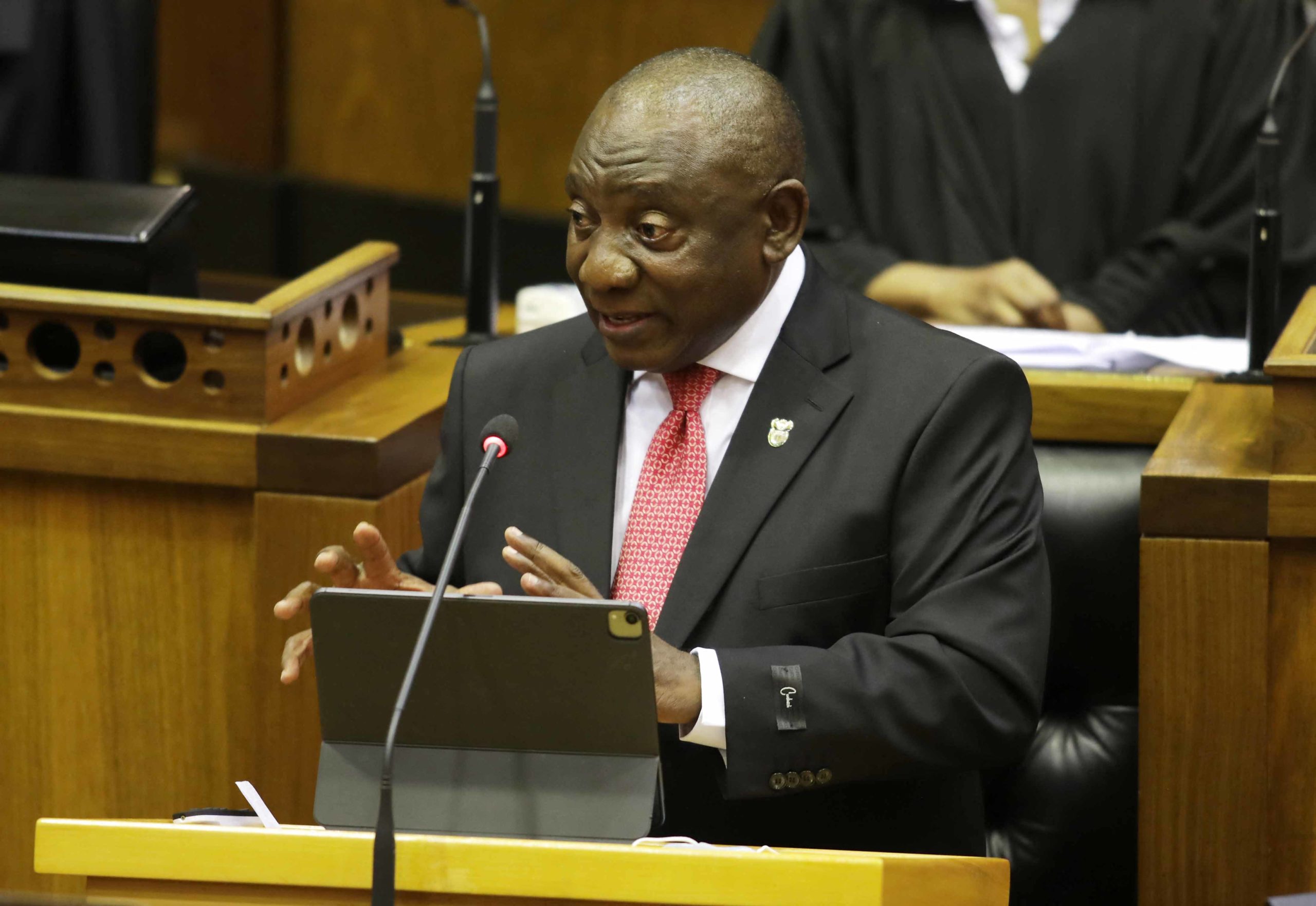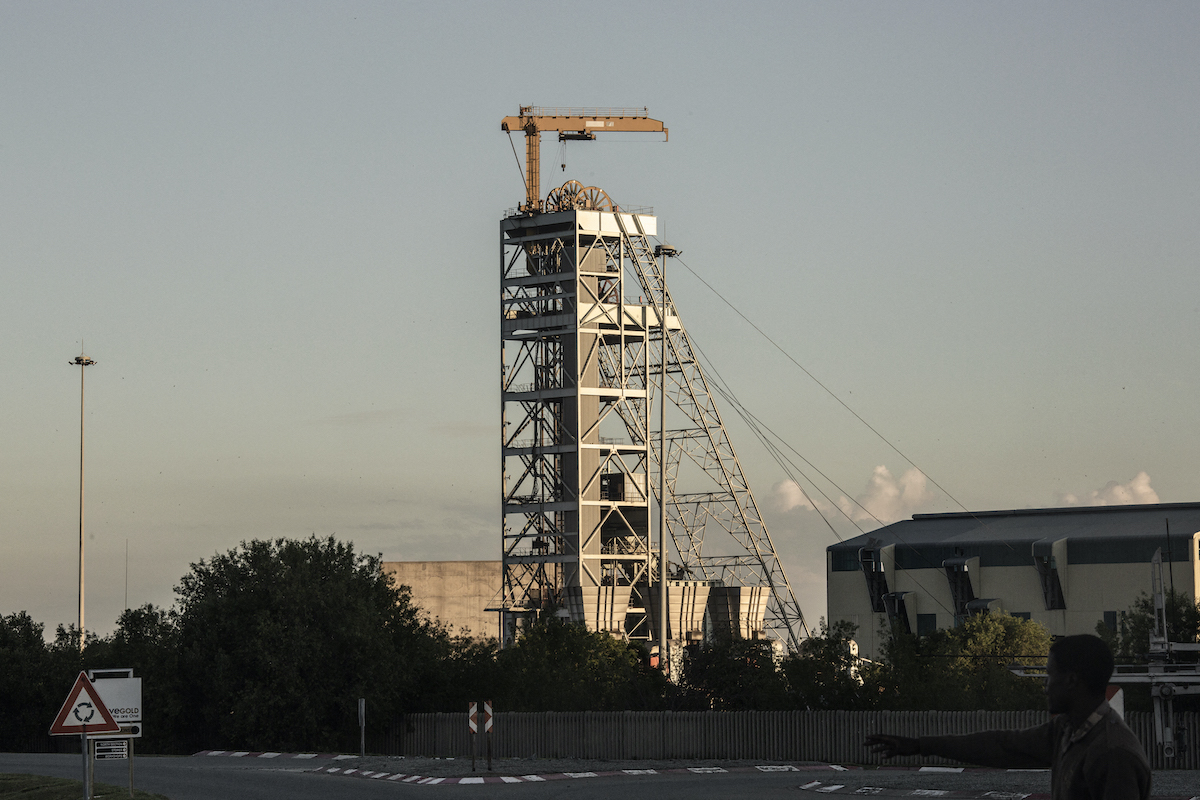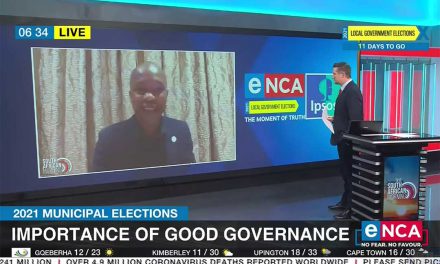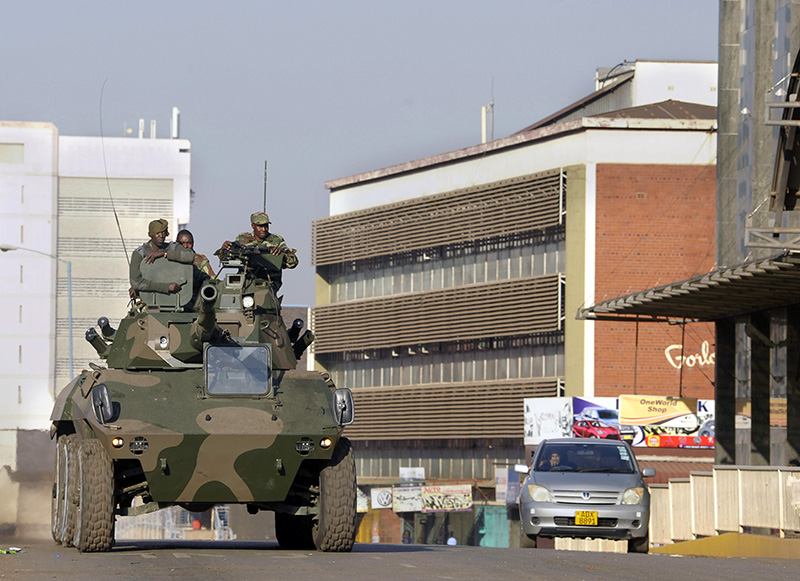
The army in Harare during military crackdowns, 1 August 2018 PHOTO: Graeme Williams
Eleven days from now, if all goes as planned, mass demonstrations against Zimbabwe’s brutal military dictatorship will be held across the country. We have no reason to expect that the regime will respond to these expressions of frustration peacefully. In character, we should expect that they will use Covid-19 as a smokescreen behind which to shut down the space for civil protest.
It is for this reason, and the fact that the vast majority of Zimbabwean citizens are now living in dire conditions, that Good Governance Africa is launching a campaign in support of reform. Where there is suffering, it is critical that we add our substantive voice to effect change.
Through research precision, with governance passion, GGA exists to improve governance performance across the continent because this results in desirable economic, social and environmental outcomes. The lack thereof, combined with the decimation of the rule of law, violent suppression of the citizenry and the wanton abuse of power on every level, obliterates hope.
Zimbabwe, because of the enduring absence of good governance, is clearly on the edge of chaos. Having been a fragile “limited access order” for at least the past two decades, the 2017 military coup to oust long-term dictator Robert Mugabe held a sliver of (evidently misplaced) hope. This hope did not materialise, and the militarised faction of the ruling Zanu-PF, in an effort to displace the ascending coalition run by Grace Mugabe, has simply run the country into the ground.
Through severe economic mismanagement, unemployment has escalated to 90%, which effectively means that 90% of citizens are reliant on the informal sector. At the behest of the ruling elite, the state apparatus has been repeatedly deployed to destroy the sector, not only physically but also through suspending money market transactions – the only thing enabling poverty-stricken Zimbabweans to trade and eke out a living. It is unconscionable that this military regime openly drives its citizens into destitution.
In limited access orders, political and business elites form a coalition to manipulate economic institutions to generate rents for themselves and distribute them (patronage) to maintain power. Reform is less costly in their political calculus than suppression. Therefore, they ensure that no institutions develop that can provide certainty that economic transactions will be honoured. In other words, they shut down any mechanisms of credibility that signal to investors that their investments would not be expropriated. Moreover, as in the recent episode in Zimbabwe, they shut down any private enterprise such as the stock exchange and mobile money transactions. Ruling party insiders then typically benefit from buying US dollars at the official rate and selling them on the black market for an extortive return. All the while, they blame hyperinflation (now above 800%) on invisible enemies who are “manipulating” the market (and so must be shut down).
Similarly, ruling coalitions of this nature actively undermine the rule of law. Equilibria of coordination that would ensure a broad-based distribution of resources and conditions under which economic dynamism and political accountability could be unleashed are carefully dismantled. They ruthlessly shut down the space for opposition movements or actively drive wedges between them through fear, manipulation or co-optation. It’s a play straight out of the dictator’s handbook.
Setting Zimbabwe on a new trajectory requires the generation of incentives either for the ruling elite to reform, which seems unlikely given the deterioration since 2017 (accompanied by a set of stolen elections), or to step down, which requires immense internal and external pressure.
In support of helping to generate the latter, in the build-up to 31 July, Good Governance Africa will be providing back-to-back content to bring you up to speed, not only with what is unfolding in Zimbabwe, but – more importantly – with unique structural analyses that help you to understand how the current conditions materialised and what can reasonably be done to prevent further malaise and even achieve reform.
From a clear, coherent, consistent and courageous standpoint, GGA stands with the people of Zimbabwe, amplifying their cry for a sustainable resolution to bad governance. This work will also land directly in the hands of those in our networks who hold influential global policy-making positions.
The first material of substance in this respect is the editorial of a special Zimbabwean edition of Africa in Fact (AiF), GGA’s signature publication that was published in May 2019. Dr Sholto Cross writes the following:
“Constitutionalism in Zimbabwe has failed. … This special edition of Africa in Fact considers the ways in which the lack of respect for the 2013 Constitution lies at the heart of the breakdown of public services, the abandonment of the rule of law and the ensuing drastic decline in the quality of life for the mass of the people.”
Indeed, this much is clear. The 2017 military coup that removed Robert Mugabe did little to transform the very party that had done his bidding for 37 years. While it was remarkable that Zanu-PF military loyalists did remove him – entrenched dictators normally die of “natural” causes or are assassinated by forces external to the ruling coalition – the predatory nature of the state he had led has only solidified. One wonders what is left to loot, though.
Every day from here on, one article from this special edition will be released, interspersed with deeper analyses from our team of researchers. We also invite you to follow our AiF blog campaign on Covid-19, where Owen Gagare is providing hard-hitting coverage of the regime’s woeful responses to this epidemic. Your feedback, as always, is welcome. Finally, we ask you to stand with us as we stand with the people of Zimbabwe to effect change.
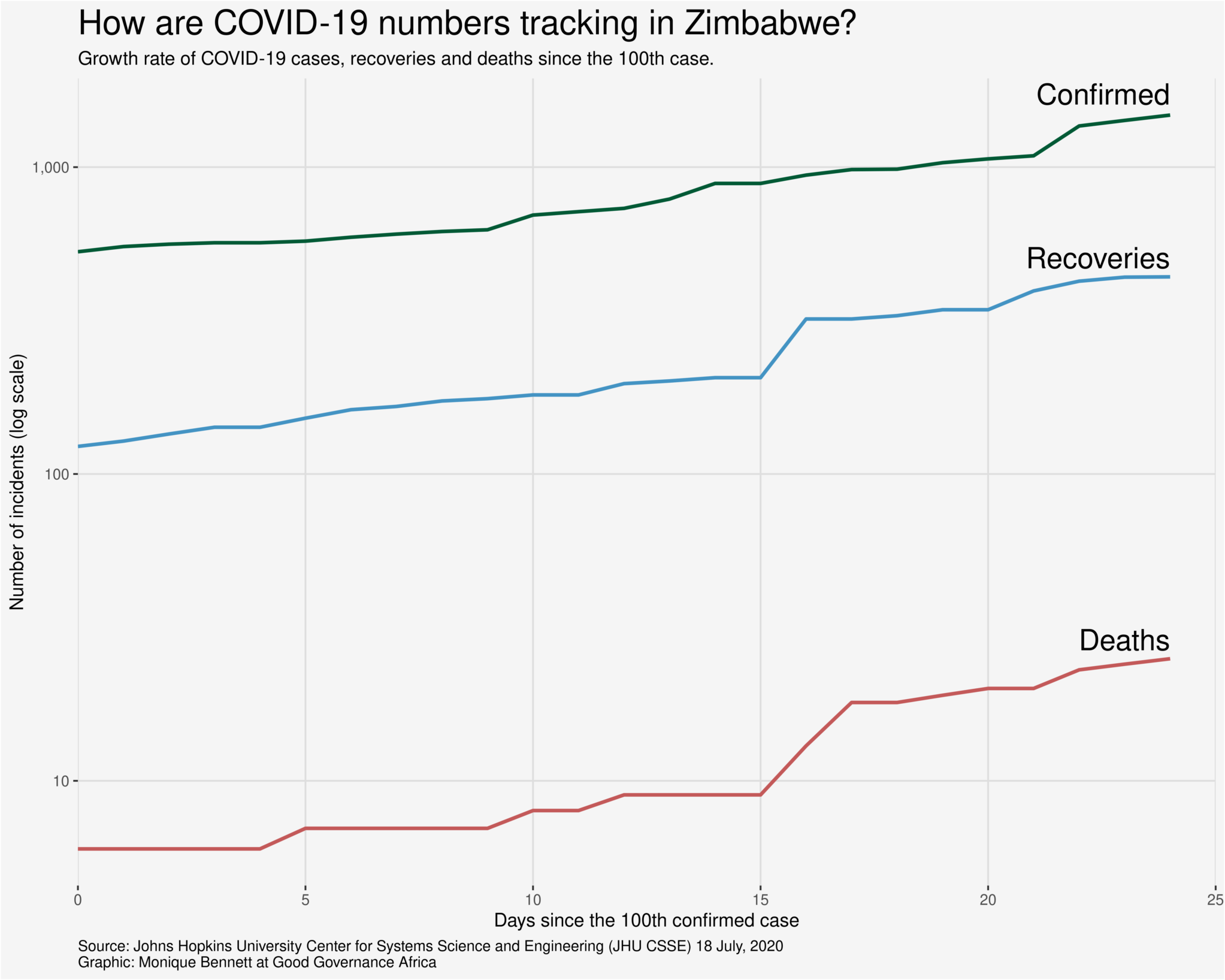
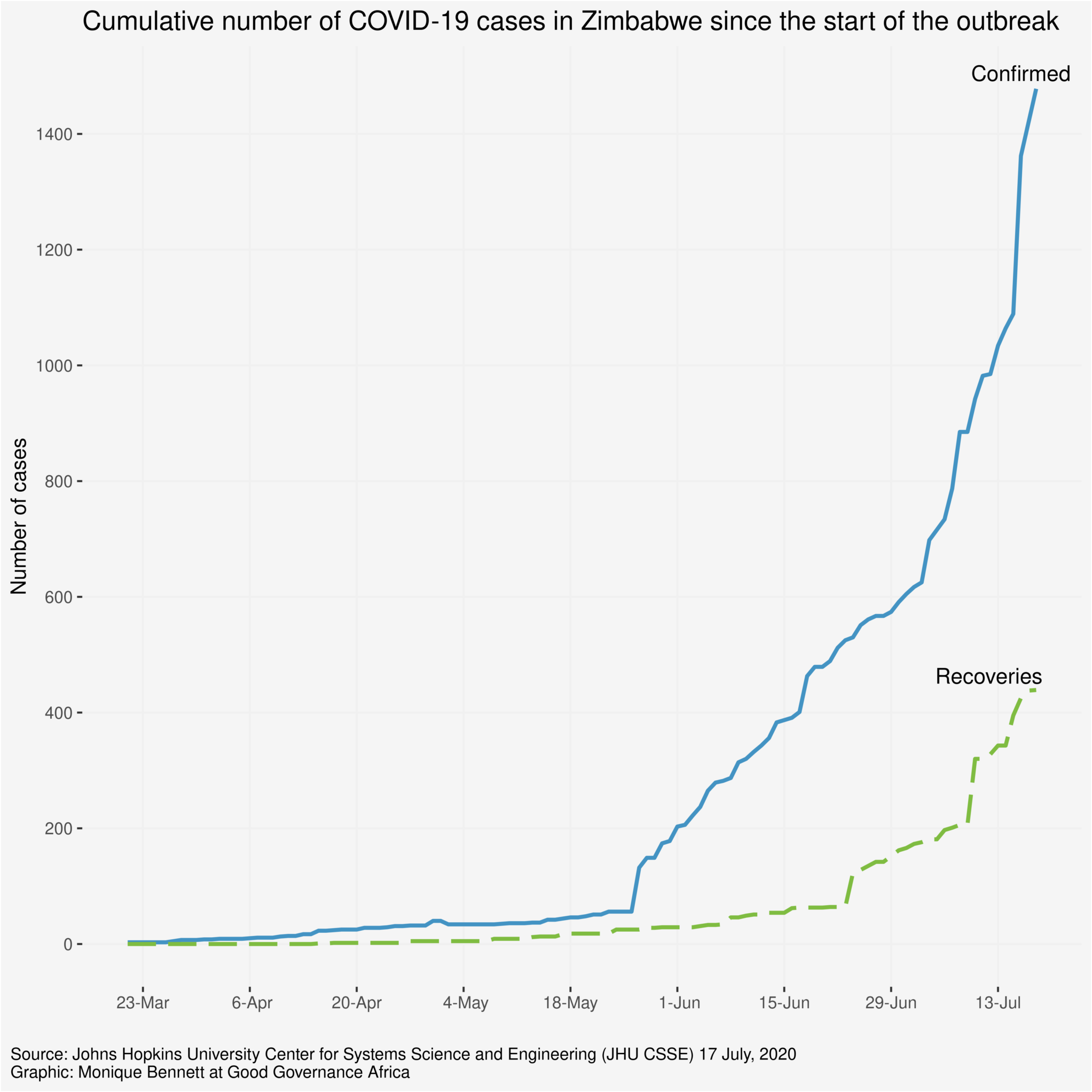
Dr Ross Harvey is a natural resource economist and policy analyst, and he has been dealing with governance issues in various forms across this sector since 2007. He has a PhD in economics from the University of Cape Town, and his thesis research focused on the political economy of oil and institutional development in Angola and Nigeria. While completing his PhD, Ross worked as a senior researcher on extractive industries and wildlife governance at the South African Institute of International Affairs (SAIIA), and in May 2019 became an independent conservation consultant. Ross’s task at GGA is to establish a non-renewable natural resources project (extractive industries) to ensure that the industry becomes genuinely sustainable and contributes to Africa achieving the Sustainable Development Goals (SDGs). Ross was appointed Director of Research and Programmes at GGA in May 2020.

